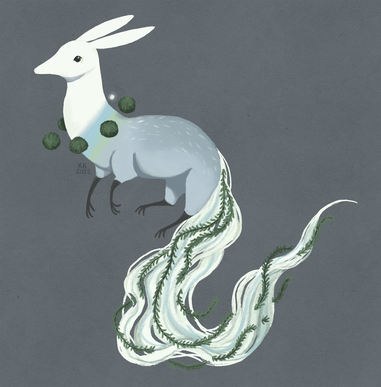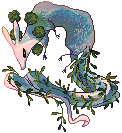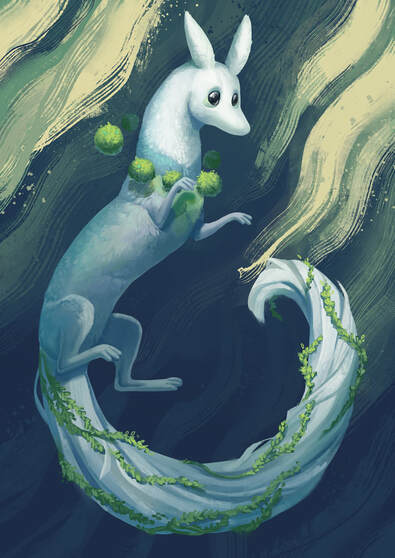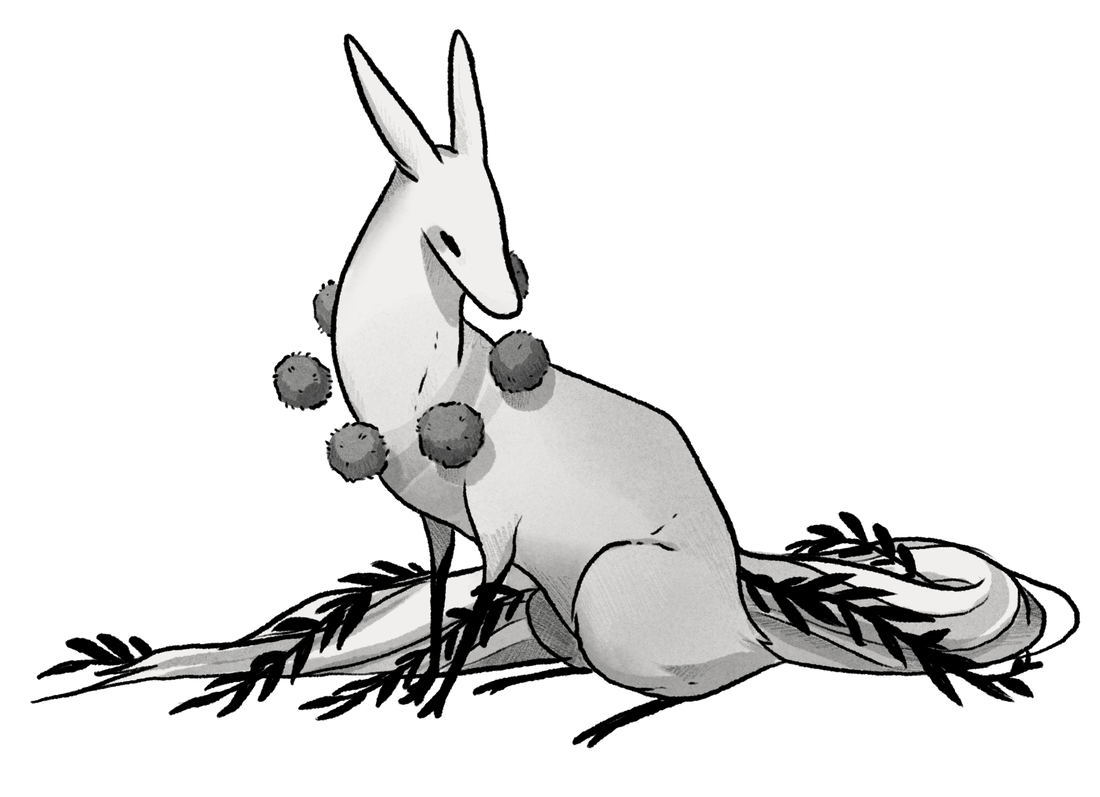喜雨 xǐ yǔ #464773 GP
| GP tracker | inspiration |
| story & personality | | transformations | | masterlist entry | claim | | player profile | deviantart profile | |
story & personality
喜雨 (xĭyŭ)'s memories are slowly returning to her. For some reason, she is deeply sentimental about her boundary but feels like a permanent outsider— not from this place or this time. She remembers laughter and belonging and a feeling of something warm abruptly ended. A roar of chaos, stomach-churning in its intensity, and now...here.
喜雨 spends her days loitering around her boundary and biome. However, her favorite activity is watching and interacting with the humans that travel to the scenic shores and peaks of her home. Mostly, her only visitors are sojourning poets seeking inspiration from the breathtaking natural beauty around them and the alcohol within them. 喜雨 only approaches when she's sure her presence will be forgotten by next morning, but she offers advice and acts as a muse for visiting creatives. Unbeknownst to her are whispers of a legendary dragon that resides within her lake that bestows blessings and success. It is said that Guan Yin herself confides in this dragon. If she were to catch wind of that rumor, well, you'd never hear the end of it.
喜雨 is a lively presence that exudes joy and seems to always have a story to tell or an insight to provide. Her perky loquacity is either lost on her drunk visitors or mediated through layers of esk-to-human thought, so 喜雨 loves to share her enthusiasm and endless ideas with other esk. 喜雨 is smart, creative, and she knows it. Being the self-appointed muse of her boundary has given 喜雨 quite a lot of confidence. (Some might say arrogance.) Her banter is a tad harsh at times, and 喜雨 is often blunt to the point of being rude. She speaks her mind and is used to having no consequences to her speech, as the people she interacts with hardly remember her. However, overall 喜雨 means well and simply expresses her care for esk and poetry through critique.
She dictates her ideas in a higher-pitched twinkling little voice, which literally chimes in to point out something or to offer a suggestion. It's not piercing--just sharp, asserts itself, and never stops going until her point is across. 喜雨 is anything but quiet! She is very familiar with Tang Dynasty poetry as she ended up writing most of it, so she uses heavy metaphors or descriptors to describe what she immediately sees, but also is careful to analyze the rest of her surroundings and how she interacts with them. She uses exclusively natural metaphors, personifies natural phenomena, and never attaches “I think" or “I feel" to her poetry; she simply states what is. Her voice sounds like chimes, a piccolo, or a 琵琶 (pípá).
Privately, she feels a deep, inexplicable undercurrent of sorrow, like when one swims and brushes their legs into the ominously cooler, darker water below. 喜雨 realizes that she's probably distracting herself with her hobby of “helping" others, but at the same time, does not feel ready to attempt to address and unpack that sadness lurking in the benthos of her subconscious. Is there something...someone she's forgetting?
喜雨 spends her days loitering around her boundary and biome. However, her favorite activity is watching and interacting with the humans that travel to the scenic shores and peaks of her home. Mostly, her only visitors are sojourning poets seeking inspiration from the breathtaking natural beauty around them and the alcohol within them. 喜雨 only approaches when she's sure her presence will be forgotten by next morning, but she offers advice and acts as a muse for visiting creatives. Unbeknownst to her are whispers of a legendary dragon that resides within her lake that bestows blessings and success. It is said that Guan Yin herself confides in this dragon. If she were to catch wind of that rumor, well, you'd never hear the end of it.
喜雨 is a lively presence that exudes joy and seems to always have a story to tell or an insight to provide. Her perky loquacity is either lost on her drunk visitors or mediated through layers of esk-to-human thought, so 喜雨 loves to share her enthusiasm and endless ideas with other esk. 喜雨 is smart, creative, and she knows it. Being the self-appointed muse of her boundary has given 喜雨 quite a lot of confidence. (Some might say arrogance.) Her banter is a tad harsh at times, and 喜雨 is often blunt to the point of being rude. She speaks her mind and is used to having no consequences to her speech, as the people she interacts with hardly remember her. However, overall 喜雨 means well and simply expresses her care for esk and poetry through critique.
She dictates her ideas in a higher-pitched twinkling little voice, which literally chimes in to point out something or to offer a suggestion. It's not piercing--just sharp, asserts itself, and never stops going until her point is across. 喜雨 is anything but quiet! She is very familiar with Tang Dynasty poetry as she ended up writing most of it, so she uses heavy metaphors or descriptors to describe what she immediately sees, but also is careful to analyze the rest of her surroundings and how she interacts with them. She uses exclusively natural metaphors, personifies natural phenomena, and never attaches “I think" or “I feel" to her poetry; she simply states what is. Her voice sounds like chimes, a piccolo, or a 琵琶 (pípá).
Privately, she feels a deep, inexplicable undercurrent of sorrow, like when one swims and brushes their legs into the ominously cooler, darker water below. 喜雨 realizes that she's probably distracting herself with her hobby of “helping" others, but at the same time, does not feel ready to attempt to address and unpack that sadness lurking in the benthos of her subconscious. Is there something...someone she's forgetting?
important notes
If writing about or drawing 喜雨, please be especially mindful when portraying Chinese people, (Han or any ethnic minority). In general, regardless of past or present 喜雨, be vigilant in eliminating from your creations harmful, diminutive stereotypes.
喜雨 uses she/her pronouns and is a lesbian. Her personal identifiers are at the same time the framework for her beliefs and worldview, but also only a piece of her. Do not fetishize her heritage or her identity. I will do my best to portray her with sensitivity, but if I create something that does not follow these guidelines, feel free to privately message me so that we can discuss it.
Thank you!
喜雨 uses she/her pronouns and is a lesbian. Her personal identifiers are at the same time the framework for her beliefs and worldview, but also only a piece of her. Do not fetishize her heritage or her identity. I will do my best to portray her with sensitivity, but if I create something that does not follow these guidelines, feel free to privately message me so that we can discuss it.
Thank you!
appearances
You may freely create art of 喜雨, as well as have your esk interact with her! However, please ask me beforehand if you plan on using her in a larger story arc, or if you would like to write solo literature about her. Esk that seek her out will find a loquacious and cheery esk, but one that can come across as accidentally judgmental or rude. 喜雨 has yet to venture far from her boundary, but you can use all of 九寨沟's landscape as location inspiration for her home. She rarely visits the Conservatory.
transformations
Currently 喜雨 is available for transformations and to be used as a creator esk, story depending. Feel free to contact me on discord (snoodles#2090) or deviantart to ask. This is not a given, but you are more than welcome to ask!
inspiration & playlist
春夜喜雨 好雨知时节 当春乃发生 随风潜入夜 润物细无声 野径云俱黑 江船火独明 晓看红湿处 花重锦官城 good rain knows its season when it becomes spring, it brings life it secretly follows the wind into the night and moistens all things softly, without a sound on the country road, the clouds are all black on a riverboat, a single fire burns bright at dawn, one sees this place is red and wet the flowers heavy with water in the city |
other notesxĭyŭ was named after a poem by famous Tang Dynasty poet 杜甫 (Dù Fŭ),. The poem is 春夜喜雨 (chūnyè xĭyŭ), or “Welcome Rain on a Spring Night." xĭyŭ simply means “welcome rain". To the left is the Dufu's poem with my attempted translation underneath. xĭyŭ is pronounced sort of like “she you" and is roughly monotone. |
image credits
header image: witherlings
profile pixel: thelonebooty
transformation image: KO3LNHA
poetry image: fiachmara
profile pixel: thelonebooty
transformation image: KO3LNHA
poetry image: fiachmara






